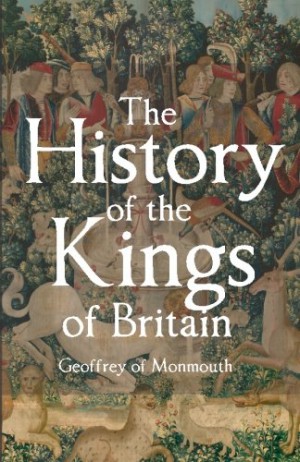 The story. Your story. It is either inspiring or it is depressing… either way it’s the context of your life
The story. Your story. It is either inspiring or it is depressing… either way it’s the context of your life
Your story can be your personal story. Telling what happened from your personal point of view. No creativity is required: it’s already applied generously.
Why? How? Anything that happened is turned into words… and words, whenever applied, create a story, a story line, an interpretation. Filters added creatively… Skewed.
Your story can be the story of your heritage. No matter how you tell this story: it is filtered through opinions, beliefs, and other filters.
You think a story tells something about the past.
But a story tells your future: reliably.
To the degree you buy into your story, to the same degree your story is like a road map for your future.
Here are two examples:
- 1. Great Britain
The Value of Heroes
(From Magical Worlds of the Wizard of Ads, 2001)
The saying, “The sun never sets on the British Empire” was true as recently as 1937 when tiny England did, in fact, still have possessions in each of the world’s 24 time zones. It’s widely known that the British explored, conquered and ruled much of the world for a number of years, but what isn’t as widely known is what made them believe they could do it.For the first 1000 years after Christ, Greece and Rome were the only nations telling stories of heroes and champions. England was just a dreary little island of rejects, castoffs and losers.
So who inspired tiny, foggy England to rise up and take over the world?
A simple Welsh monk named Geoffrey – hoping to instill in his countrymen a sense of pride – assembled a history of England that gave his people a grand and glorious pedigree. Published in 1136, Geoffrey’s “History of the Kings of Britain,” was a detailed, written account of the deeds of the English people for each of the 17 centuries prior to 689 AD… and not a single word of it was true.
 Yet in creating Merlyn, Guinevere, Arthur and the Knights of the Round Table from the fabric of his imagination, Geoffrey of Monmouth convinced a sad little island of rejects, castoffs and losers to see themselves as a just and magnificent nation.
Yet in creating Merlyn, Guinevere, Arthur and the Knights of the Round Table from the fabric of his imagination, Geoffrey of Monmouth convinced a sad little island of rejects, castoffs and losers to see themselves as a just and magnificent nation.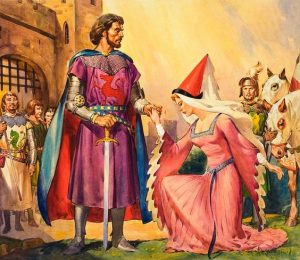 And not long after they began to see themselves that way in their minds, they began seeing themselves that way in the mirror.
And not long after they began to see themselves that way in their minds, they began seeing themselves that way in the mirror.Most people assume that legends, myths and stories of heroes are the byproducts of great civilizations, but I’m convinced they are the cause of them. Throughout history, the mightiest civilizations have been the ones with stories of heroes; larger-than-life role models that inspired ordinary citizens to rise up and do amazing things.
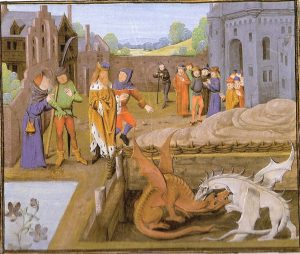 It’s no secret that people will do in reality what they have seen themselves do in their minds.
It’s no secret that people will do in reality what they have seen themselves do in their minds.What do you see yourself doing?
Are you a person who gets things done?
People who get things done
push past the idea that “now is not a good time.”People who get things done
believe that a good plan today is better than a perfect plan tomorrow.People who get things done
leap off the edge, trusting that a net will appear.People who get things done
build their rocket ship while they’re flying it. 1Unrelenting action
is what turns starry-eyed daydreams
into steely-eyed objectives.You say you have a goal.
Let me look into your eyes.
Now tell me what you’re going to do today.Roy H. Williams 2
- 2. The Jews
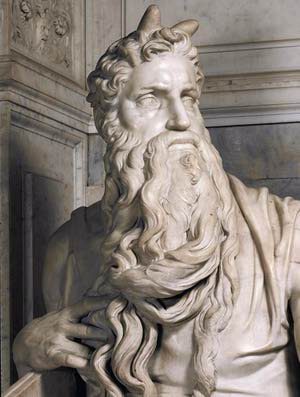
Here you have a different story, the results of which I am intimately engaged daily, given that I am a Jew.Being a Jew is neither a religion, nor an ethnicity: it is being a participant in the same story.Here is how I see the story went:Long long time ago god almighty went around the world and asked different groups of people, tribes, countries, kings and commoners, if they would be willing to participate in a grand experiment.The experiment would require them to live according to the word of god, and forego the word of flesh and ego.
For years our god wondered from country to country, only to get “No way, we won’t forego the pleasures of the flesh or the ego”… so he went and asked until he finally got to the last country, a barren unfriendly place, and asked the people there.
And those people said: Yeah, why not?
And thus a covenant was made: you do this for me and you will be my special people, said god, and left them at that. With the rule book.
It took a while, but eventually the barren place’s people, the Hebrews, a nomadic, shepherd people, united and said: we can be chosen to be special if we keep the commandments.
Whatever you pay attention grows. The Hebrew people, the Israelites now had a story… a story that was and has been a defining story for their identity: we keep the word of god and we are the chosen people… Easy as pie.
And while other nations were warring, or having fun, the Hebrew people studied the word of god… after all you can’t keep what you don’t know.
And while they were doing that, they, unbeknownst to themselves, they distinguished themselves… they grew spiritual capacities, they grew new connections in the brain, they actually worked for what they wanted, and in centuries they got better and better at it.
Until some time in the 20th Century, the story was not told any more.
The Jews, hoping that they can blend in, and stop being killed, stopped telling the story.
Intermarriages were starting to happen.
…and the story is slowly dying. And with it a whole culture of diligence, working for knowledge, working for what you want…
Most of today’s Jews are not Jews any more… they are not part of that story. They may have chosen the story of the persecuted, the minority, the misunderstood.
The original story was an empowering story… it empowered a group of people for thousands of generations.
This new story isn’t empowering… not to me, not to anyone. But it makes excellence more palatable… maybe?
The future today’s Jews live into is that they are just like everyone else. A story no one can be proud of.
- Christians have a story, but they had to force it to billions… I don’t like it when a story needs to be forced… a story needs to be attract instead. Just my opinion, of course.
OK, what’s the point?
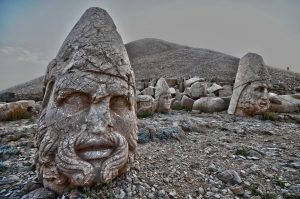 I had a call with a Kurd client/student this morning.
I had a call with a Kurd client/student this morning.
His genetic predisposition is totally consistent with his ancestry.
He and his family will need to eat like his ancestors: mountain men, sheep, goats, no cultivated land: the land is try and barren.
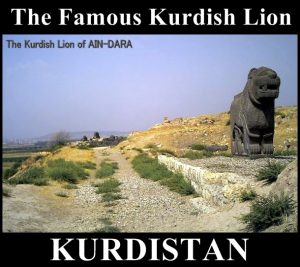 The food list says no to most of the food people living in his adopted country eat.
The food list says no to most of the food people living in his adopted country eat.
 So, if he wants to be successful and be proud to eat what he can, and make his wife and two children proud, he needs to invent a story, much like the monk Geoffrey did about England, much like some early Jew invented about the Jews…
So, if he wants to be successful and be proud to eat what he can, and make his wife and two children proud, he needs to invent a story, much like the monk Geoffrey did about England, much like some early Jew invented about the Jews…
 A story where being a Kurd, eating like a Kurd is an honor and a privilege, because belonging to that history is like being royalty.
A story where being a Kurd, eating like a Kurd is an honor and a privilege, because belonging to that history is like being royalty.
I watched the first season of the TV series “The Crown” on Netflix. I made some observations that fit here.
A royal who did not buy into the story of royalty, was miserable. princess Margaret, or Queen Elizabeth’s uncle… Edward who preferred to be married to an American divorcee.
They wanted the benefits, the goodies, but not the price you pay.
There is a price if you want the goodies.
If you are a Jew, and want the goodies of being a Jew, you need to buy into the deal: you need to live by the word: work for what you want, know the word, be charitable, etc.
If you are a royal… hell, you can’t marry a commoner, especially not a divorcee… You can’t behave like a commoner… or you won’t get the goodies.
For my Kurd client: if he wants to goodies of being a Kurd: intelligent, hard working, far seeing, hardy, resilient: he will have to eat like a Kurd… and honor hardship like a badge of honor.
You can’t have it both ways.
What does this mean to you?
You need to craft a story that will foster capacities you want to use, and that honoring that story will get you what you want.
Or you’ll live out of the same old victim story where who gives you meaning are the people who don’t give a hoot about you.
You either honor your story you carefully crafted, or you’ll honor society’s story… and be thoroughly miserable.
I know you have chosen society’s story. But the good thing about stories: you can craft a new one and start honoring that, instead.
Happiness, peace of mind, autonomy, independence, growth, evolution is not possible inside society’s story.
If you don’t know who is the sucker: you are the sucker.
You don’t want to be the sucker!
Choose your story carefully. Your life, your joy, your well-being depends on it.
- I borrowed the rocket ship line from the not-yet-published “We Believe” list crafted by the team at Kit and Ace.
- You thought Arthur and his Knights of the Round Table first appeared in Thomas Malory’s LeMorte D’Arthur? Nope, Malory’s work, published in 1485, was based on Geoffrey of Monmouth’s fictional “history” which had been published and widely circulated 349 years earlier in 1136. And one last thing, Geoffrey Chaucer was a completely different guy. Monmouth’s “History of the Kings of Britain” had been around for more than two centuries when Geoffrey Chaucer was born.
